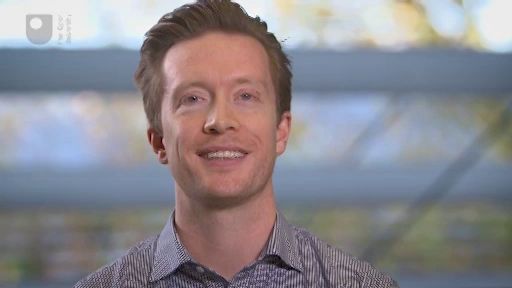4 Establishing an effective language learning routine
We noted earlier on in the course that language-learning ‘know-how’ is only part of the battle. A small part, in fact. Knowing and doing are not the same thing and in my experience working with thousands of language learners around the world, there is one factor above all else that determines success in learning a language: the ability to learn consistently over time.
Activity 4 Reflecting on past achievements
Think about a time in your life when you achieved something impressive. For example, finishing a big project at work, gaining a diploma or a degree or passing an important exam. How did you arrange your routine to make that happen? Do you learn your new language with the same attitude or determination?
The aim of this section is very simple: to impress on you the importance of working at your new language every day and to keep it up over time.
This much is straightforward and the importance of this does not need much explaining. The reality, however, is that our lives are complex, busy and our priorities change over time. It is a rare case that someone can work at their language for months (or years) on end without interruption, breaks or otherwise.
When we talk about routine in language learning, then, we need to anticipate such disruptions.
Here’s a typical scenario:
- John starts learning French.
- He is excited and devises a grand plan for how he will learn.
- He is determined to work hard at it and become fluent in French.
- His plan gets off to a good start, but becomes unsustainable amid a busy work and family life.
- John ‘falls off the horse’ and stops studying for a couple of weeks.
- The prospect of returning to his overly-ambitious study plan is scary for John.
- Instead, he waits until ‘things calm down at work’.
- Months pass and John has done little or no study.
Progress in a foreign language does not come from fits and starts. It comes from systematically working at it over time. Therefore, understanding how you can learn a language in a sustainable way and avoid the crash and burn scenario described above, is, I have come to understand, the single biggest consideration for independent language learners.
I will now take you through a series of exercises that will help you determine how you will most likely be successful in your language learning. The main aim is to discover how language learning can fit around your lifestyle, not how we can bend your lifestyle to create time for language learning.
Because the secret to success is consistency and sustainability, the more realistic you can be about your available time, the more likely you will be able to keep it up over the long-term.
Activity 5 Creating a study schedule
Take a blank piece of paper and divide it into seven columns – one for each day of the week. Considering your family, work, and other commitments, mark on the paper all parts of the week where you could potentially create uninterrupted time for language study. (Don’t forget to sleep!)
For example:
- Weekdays: 7–8 am.
- Tuesdays and Thursdays: 8.30–10 pm.
- Weekends: 9–10 am., 3–5 pm.
Next, think about your dead time. This is time where you can’t usefully do anything that requires focus. For example: commuting, walking to work, shopping, waiting for your children while they are at cubs, gym club or ballet class. Make a note on the paper of all dead time that occurs on a regular basis during your week.
Once you have identified all the points in your week where you have a good opportunity to learn, the next step is to put together a study schedule.
Here is how I suggest you decide on a routine:
- Identify a daily time for focused language study (30–60 minutes). During this period, you need to bring your full attention to the task of studying. Therefore, you need a quiet space where you can concentrate. This should be something you aim to do daily, although you can take the weekend off.
- Decide which points in your day are ‘dead time’ (15–30 minutes). Devote a least one daily period of ‘dead time’ to spend with your target language, such as your morning commute. Treat this time as an opportunity for exposure to the language, rather than focused study. You might listen to podcasts, or review the dialogues from your textbook, for example.
- Schedule opportunities to speak (30–60 minutes). Unless you live in a foreign language environment, you probably do not get many opportunities to speak your target language. Therefore, you should schedule this into your week to ensure it happens. Whether you take lessons online, or have coffee with a language partner, it is helpful to have at least 2–3 speaking sessions per week in order to make progress.
Activity 6 Comparing Olly’s study routine to yours
Watch this video which outlines my study routine in detail. Compare this routine to yours. Can you see any opportunities to improve your plan? Is there anything you hadn’t considered?

Transcript
Earlier, I emphasised the importance of creating a study routine that is realistic, so you can keep it up over the long-term. With that said, once you have identified a learning routine that you will follow, it is important that you commit to it. This means scheduling study time throughout your week. I like to go as far as writing it in my calendar each week, so that I have an appointment with myself.
Of course, not everyone will be able to – or want to start learning at 5 am. This routine suits me, because I am an early riser, and 5 am is a quiet time before my daughter wakes up. What I want you to take away from my experience is that the responsibility for turning up and studying your language each week will ultimately rest with you. Providing you have made realistic choices, though, you will have created a good routine that will fits nicely around your lifestyle, and will lead to success in your language learning.
Laura says:
As a shift-worker who is frequently on call and whose schedule can get rather disrupted by emergencies at work, I have never been able to have the sort of structured routine Olly recommends. I have to be more flexible in my approach, but I still make a point of studying regularly. For instance, I am not always able to study at the time of day when I am most ‘fresh’ or alert, because that is when I have to be at work, so I sometimes have to study in the evening rather than the morning. I usually do my best work at the weekend, so that is when I aim to work on the most difficult parts (for me) and therefore I allow myself to work on the easier parts when the only time I have free in the week is in the evenings.
Activity 7 Schedule your study plan into your diary or calendar
Grab your diary, and write in your new language study schedule for the next week. The point here is not to be perfect – your schedule will undoubtedly change over time. However, by making an informed plan for learning, and committing to it, you vastly increase your chances of following through.
